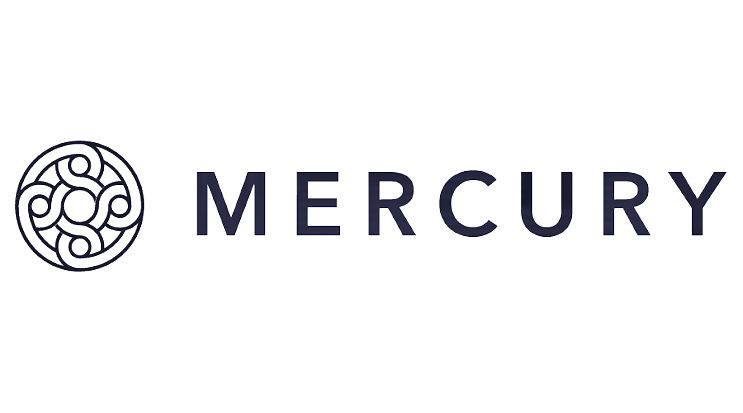In today’s world, mental health awareness has significantly increased, and many individuals are seeking ways to improve their emotional and psychological well-being. For some, traditional therapy, with its foundation in Western psychology, is a go-to solution. Others, especially within the Muslim community, may find comfort in seeking guidance through Islamic counseling, a practice rooted in Islamic teachings and values. While both approaches aim to promote emotional well-being, they differ in their philosophy, techniques, and the way they view the mind, body, and spirit.
In this article, we will explore the key differences between Islamic counseling and traditional therapy, along with the unique benefits each approach provides. We will also examine how Islamic counseling courses can help individuals understand these differences and how they can be applied in real-life scenarios.
What is Traditional Therapy?
Traditional therapy, also known as psychotherapy or counseling, is primarily based on Western psychological theories and methods. It involves a range of therapeutic approaches designed to address mental health issues, emotional problems, and behavioral patterns. Some of the most common forms of traditional therapy include:
- Cognitive Behavioral Therapy (CBT): Focuses on changing negative thought patterns and behaviors.
- Psychodynamic Therapy: Explores the unconscious mind and past experiences to understand current behavior.
- Humanistic Therapy: Encourages self-exploration and personal growth.
- Dialectical Behavioral Therapy (DBT): Helps individuals regulate emotions and improve interpersonal relationships.
In traditional therapy, the therapist is typically seen as an expert who listens to the client’s concerns, analyzes their issues, and provides strategies for coping with life’s challenges.
What is Islamic Counseling?
Islamic counseling, on the other hand, is a therapeutic approach deeply rooted in Islamic principles and values. It seeks to guide individuals toward emotional and spiritual wellness, using Islamic teachings from the Qur’an and Hadith (sayings of Prophet Muhammad, PBUH). Unlike traditional therapy, which often focuses on the individual’s mind and behaviors, Islamic counseling aims to nurture both the mind and the soul.
In Islamic counseling, the counselor encourages the client to turn to Allah (God) for guidance, fostering trust in divine wisdom and mercy. It combines modern psychological techniques with Islamic principles such as the concept of Tawhid (the Oneness of God), the role of prayer and remembrance of Allah (dhikr), and the importance of community support. The goal is not only emotional healing but also spiritual growth, helping individuals align their lives with Islamic teachings.
Key Differences Between Islamic Counseling and Traditional Therapy
1. Philosophical Foundation
The main difference between Islamic counseling and traditional therapy lies in their underlying philosophy.
- Islamic counseling is based on the belief that true healing and peace come from Allah alone. It acknowledges the importance of divine wisdom and considers the role of faith and spirituality in healing. A counselor may guide a client to connect with Allah through prayer, supplication, and remembrance, as well as through trust in Allah’s plan.
- Traditional therapy, on the other hand, is largely secular and does not incorporate religious or spiritual elements. It focuses on addressing the mental and emotional aspects of the individual, using scientific principles of psychology. The approach is often human-centered, with the assumption that individuals have the capacity to heal themselves through introspection, therapeutic strategies, and behavioral change.
2. Approach to Mental Health
- Islamic counseling treats mental health as a holistic condition that encompasses both the mind and the spirit. It encourages individuals to find balance through faith, prayer, and connection with Allah. It emphasizes that spiritual well-being is just as important as emotional well-being. The goal is not just to address emotional distress but to foster spiritual growth and alignment with Islamic teachings.
- Traditional therapy primarily focuses on the psychological and emotional aspects of mental health. It addresses specific issues like anxiety, depression, stress, and trauma, often through behavioral techniques. Traditional therapy relies on methods like Cognitive Behavioral Therapy and Psychodynamic Therapy, which are grounded in understanding human behavior, thought patterns, and emotions. It generally does not consider spiritual factors unless the client personally brings them into the therapy session.
3. Role of Faith
Faith plays a central role in Islamic counseling. Counselors encourage clients to turn to Allah for strength, healing, and guidance. Practices like prayer, fasting, and charity are often used as tools to help clients cope with emotional challenges. For Muslims, turning to faith provides comfort and a deeper sense of purpose, as their challenges are seen as part of Allah’s divine plan.
In traditional therapy, faith is generally not incorporated unless the client specifically chooses to do so. While therapists may acknowledge and respect the client’s religious beliefs, traditional therapy tends to focus more on psychological concepts and does not directly integrate religious practices.
4. Cultural Sensitivity
- Islamic counseling is inherently culturally sensitive as it aligns with Islamic values and practices. It respects the unique challenges Muslims may face, such as the pressure to maintain religious obligations while dealing with modern-day challenges. Counselors in this field are often aware of the cultural context and are trained to provide support that aligns with both Islamic teachings and the client’s personal experiences.
- Traditional therapy can also be culturally sensitive, but it may not always fully understand or respect the nuances of a client’s religious and cultural background. Therapists from secular backgrounds may be less familiar with Islamic teachings and may not be able to address spiritual concerns in the same way that an Islamic counselor would.
5. Therapeutic Techniques
- Islamic counseling integrates Islamic practices such as prayer, dhikr (remembrance of Allah), reading the Qur’an, and engaging in charitable activities. These practices help individuals find peace and comfort while dealing with life’s challenges. Additionally, modern psychological techniques, such as Cognitive Behavioral Therapy (CBT) and mindfulness, are adapted to align with Islamic values.
- Traditional therapy uses well-established therapeutic methods, such as Cognitive Behavioral Therapy, Psychodynamic Therapy, and Humanistic Therapy, to address mental health issues. These approaches do not typically involve religious practices and focus more on helping individuals understand their emotions, thoughts, and behaviors.
Benefits of Islamic Counseling
- Spiritual Alignment: One of the most significant benefits of Islamic counseling is its ability to help individuals align their emotional and spiritual lives. By incorporating religious principles into the healing process, clients can find comfort in their faith and develop a deeper connection with Allah.
- Culturally Relevant: For Muslims, Islamic counseling offers a more culturally and religiously relevant approach to therapy. It respects Islamic values, which can help clients feel more comfortable and understood in their therapeutic journey.
- Holistic Healing: Islamic counseling focuses on both the mind and the soul, encouraging a balanced approach to mental health. Clients are encouraged to nurture their spiritual, emotional, and psychological well-being simultaneously.
- Comprehensive Understanding of Human Nature: Islamic counseling offers a more comprehensive understanding of human nature, acknowledging that emotional struggles are not merely a product of psychological factors but also a result of one’s spiritual state. It offers solutions that are deeply rooted in Islamic teachings.
- Emphasis on Community Support: Islamic counseling often encourages individuals to seek support from their community, family, and religious leaders. This communal aspect is particularly beneficial for emotional well-being, as it provides a strong support system.
Benefits of Traditional Therapy
- Evidence-Based Techniques: Traditional therapy uses scientifically supported techniques that have been proven to help individuals manage a variety of mental health issues, such as depression, anxiety, and PTSD.
- Structured Framework: Traditional therapy often follows a structured approach that includes defined therapeutic goals, timelines, and interventions. This framework can be very effective for those who prefer a more organized and goal-oriented approach to their mental health.
- Emotional Regulation: Through techniques like Cognitive Behavioral Therapy (CBT), traditional therapy helps individuals identify negative thought patterns and replace them with healthier, more balanced thoughts. This can be very effective for managing conditions like anxiety and depression.
- Focus on Self-Reflection: Traditional therapy encourages individuals to reflect on their thoughts, behaviors, and past experiences, leading to greater self-awareness and personal growth.
- Broad Accessibility: Traditional therapy is widely available, with many licensed therapists offering services in person or online, making it accessible to individuals from all walks of life.
Islamic Counseling Courses and Training
For individuals interested in pursuing a career in Islamic counseling, several Islamic counseling courses are available online. These courses combine Islamic teachings with modern psychological techniques to offer a unique and comprehensive approach to counseling.
By enrolling in these courses, individuals can learn how to incorporate Islamic principles into therapeutic practices while also understanding how to use evidence-based psychological methods. The skills gained from these courses can help individuals provide culturally relevant, faith-based counseling to those seeking emotional and spiritual healing.
FAQs
1. What is the difference between Islamic Counseling and Traditional Therapy?
Islamic counseling integrates Islamic teachings and practices, such as prayer and remembrance of Allah, with modern psychological techniques. Traditional therapy, on the other hand, focuses primarily on psychological methods and does not typically include religious practices.
2. What are the main benefits of Islamic Counseling?
Islamic counseling offers spiritual alignment, a holistic approach to mental health, cultural sensitivity, and emotional healing through Islamic principles. It encourages individuals to connect with Allah for guidance and uses Islamic practices to support emotional well-being.
3. Can I take an online course in Islamic Counseling?
Yes, many Islamic counseling courses are available online, allowing individuals to learn how to combine Islamic principles with modern therapeutic techniques for effective counseling practices.






